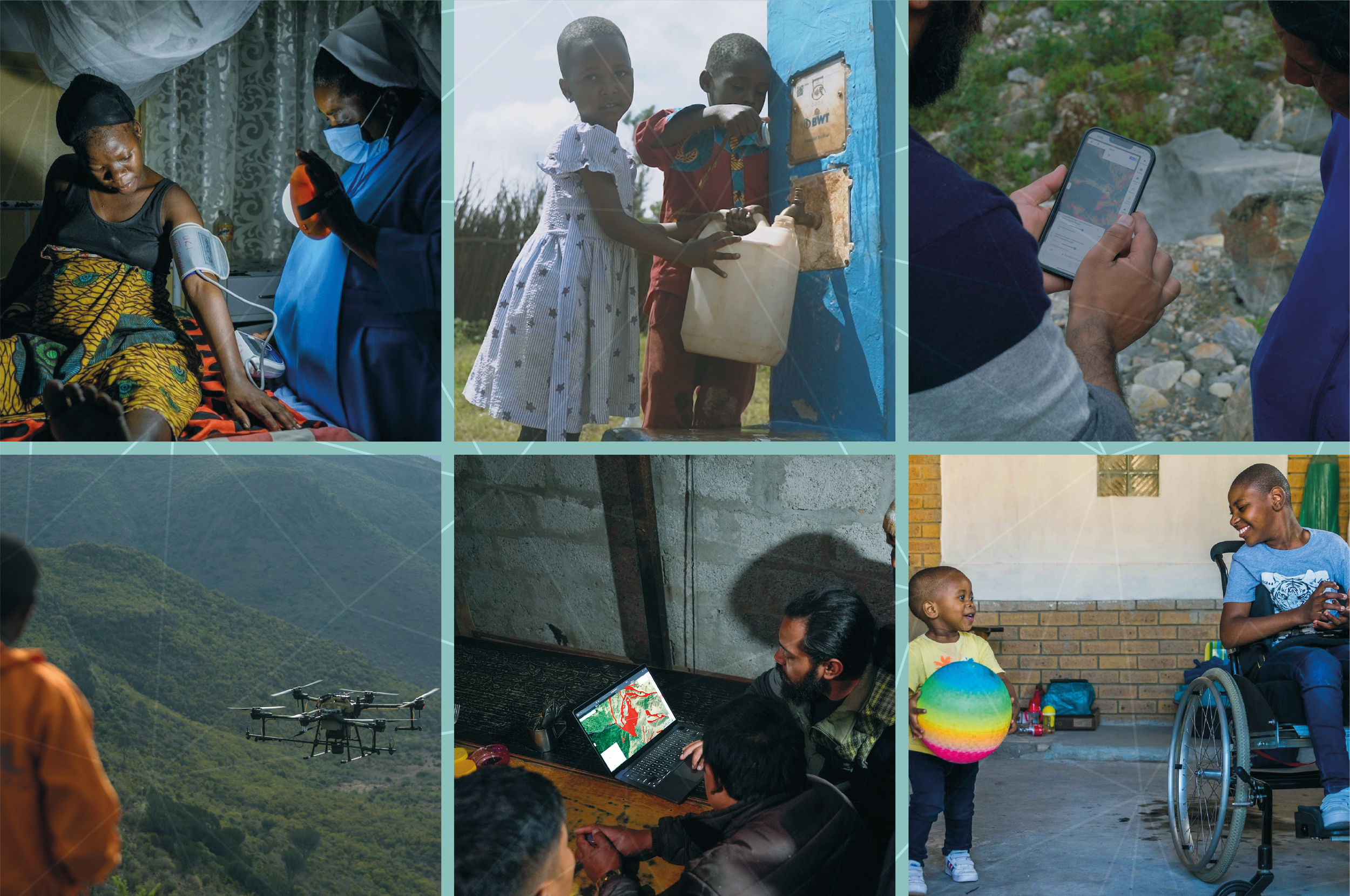13 new innovative experiments to test solutions to global challenges
From gene-editing to chatbots, discover the pioneering ideas from FCDO staff which will apply frontier technologies to global critical challenges
The Frontier Tech Hub programme, funded by Research and Evidence Directorate, works with FCDO staff and global partners to test and understand the potential for innovative tech to address critical challenges.
The Frontier Tech Hub’s 8th call for ideas has closed, and the latest cohort of pilots and FCDO Pioneers have been chosen. We received applications from 25 countries in total, and after a rigorous application process, we are happy to welcome 13 winning pilots to the Frontier Tech Hub portfolio.
Pilot teams will receive coaching support to make use of grant funding to test their idea and generate evidence. They will also receive access to matchmaking opportunities with thought leaders, personalised innovation support, possible follow-on funding, and more.
We are delighted to congratulate and welcome the newest cohort of Frontier Tech Pioneers! Here’s a preview of just some of the successful ideas:
From rice husk to silicon: exploring new supply chains for semiconductors
Pioneer: Adelene Teo, Bilateral Diplomacy Team, Malaysia
This idea will explore an alternative approach to sourcing silicon for semiconductors from an agricultural waste product, potentially yielding high-purity silica from rice husks. As well as diversifying the procurement of semiconductors in an environmentally friendly way, this technology could also benefit farmers and reduce pollution.
Behaviour change chatbot to encourage vaccine uptake
Pioneer: Pippa Ranger, Innovation and Behaviour Change Adviser, Research and Evidence Directorate
This pilot will test if chatbot technology can address multiple barriers to vaccine uptake during health crises. In addition to seeing if a chatbot can overcome practical vaccine access issues, the pilot will also explore if the technology can encourage the behaviour change necessary to increase uptake.
Smart Districts: Using IoT technologies to improve quality of life
Pioneer: Sam Kumar, Senior Advisor Climate, Economics and Development, Chennai - India
Using “Internet of Things” technologies to collect real-time data on water consumption, waste management and other key indicators at a district level, this pilot will test if smarter monitoring can improve levels of water contamination and more.
Bioplastic future: using bioplastics to transform domestic plastic production
Pioneer: Ugan Manandhar, Climate Change and Environment Advisor, Nepal
In the context of high waste and pollution, this pilot will explore if retrofitting existing plastic production machinery to produce compostable bioplastics instead can be part of the solution. In addition to a more environmentally friendly product, the pilot will also see if domestic demand for this biodegradable material can be stimulated.
Optimising vaccines for epidemics through gene-editing in Vero cells
Pioneer: Cathy Roth, Senior research fellow in infectious diseases, RED and Claire O'Neill, Economist and manufacturing advisor, Senegal
Examining how the viral vaccine production process can be accelerated by understanding how cells and viruses interact, this pilot will harness the power of gene-editing technologies. If successful, the pilot will contribute to an increase in yields and a reduction in cost per dose for outbreak vaccines.
Turning drylands into global carbon sinks
Pioneer: Mana Farooghi, Climate and Environment Adviser – Sahel Security Department
This pilot will develop frontier tech tools that can help collect and analyse ecosystem health data from soil. If successful, it will generate evidence about the potential of carbon storage in drylands and its role in ecosystem restoration. In addition, the pilot will bring carbon markets where public and private climate finance has not reached the most vulnerable communities.
Smart mobility: using assistive tech and digital mapping to promote urban accessibility
Pioneer: Anne McKinnon, Disability & Assistive Technology Adviser (RED) and Jacqueline Owigo, Social Development Advisor, Kenya
Using an electric 'third wheel' to improve mobility for people with disabilities, this pilot will combine artificial intelligence and digital mapping to identify routes and address challenges of urban accessibility. Coupled with smartphone technology, this assistive tech pilot could help people navigate more safely with improved access opportunities.
What next?
The best way to keep up to date with the progress of the new pilots, and those from previous years, is to sign-up to The Frontier Tech Hub Network. The Network connects, informs, and inspires a growing global community of FCDO, technologists, NGOs, futurists and experts interested in the potential impact of frontier technologies to address critical global challenges.


